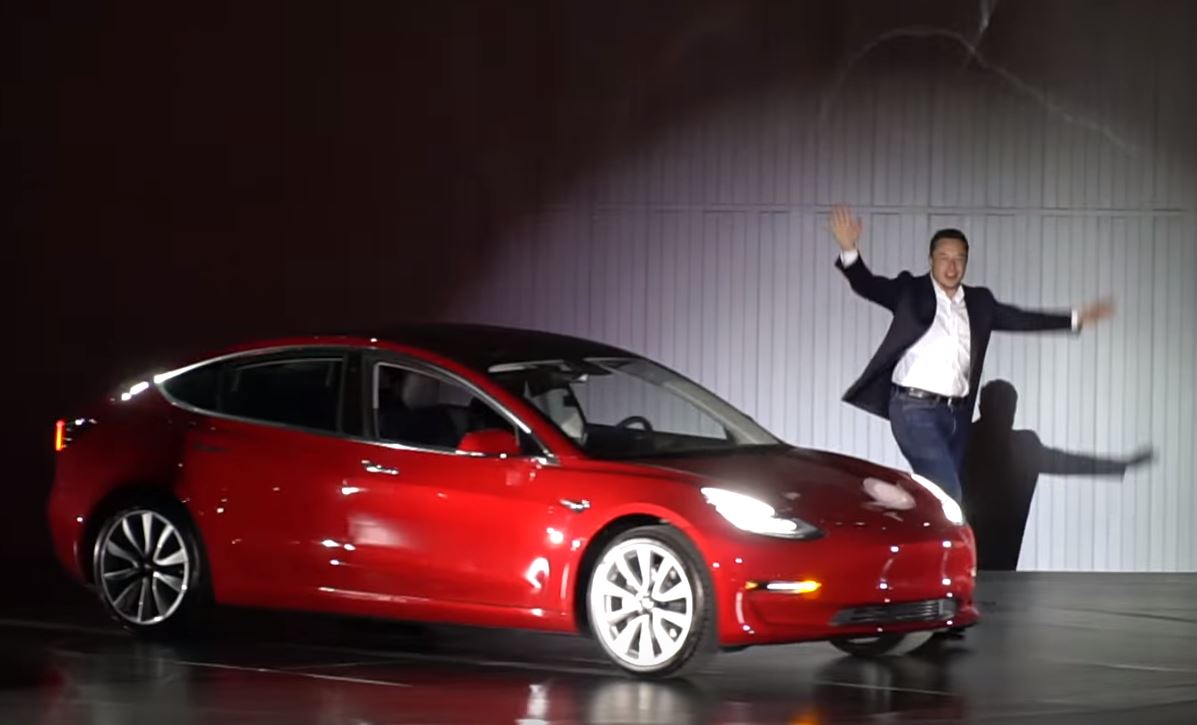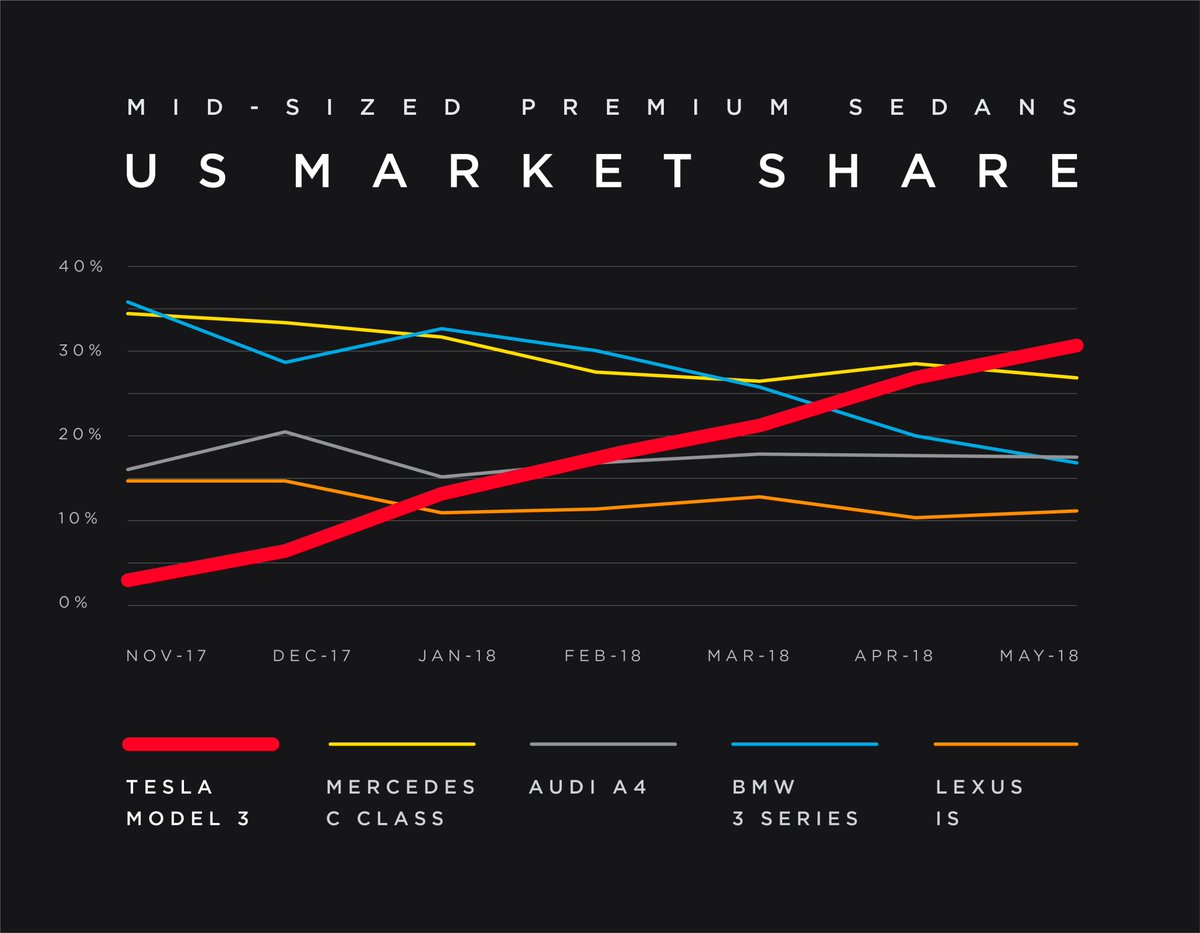I always knew one thing.
It doesn’t matter what the critics (not reviewers) say – It doesn’t matter how many people want Tesla to fail. As long as customers are ready to buy Tesla cars, Tesla will be safe.
After struggling to ramp up Model 3 production due to manufacturing bottlenecks, Tesla scrambled to hit +2000 cars/week (Model 3) production rate in April 2018. Tesla CEO Elon Musk confirmed this week that Tesla production line is now capable of building 3,500 cars per week.
Thanks to the production surge, Tesla Model 3 is now the best selling mid-sized premium sedan in United States, beating its chief rivals Mercedes Benz C Class and BMW 3 Series
May 2018 Sales
-
Tesla Model 3: 6,250
-
Mercedes Benz C Class: 5,419
-
BMW 3 Series: 3,428
(We still don’t have official Model 3 sales numbers for May. I am going to stick with third party estimates for now and update the article when necessary)
Jan to May 2018
-
Mercedes Benz C class remains the leader of the segment, selling 23,917 cars since the start of the year.
-
BMW has sold 20,629 (3 Series) cars during this period.
-
Tesla Model 3 – 18,305
After lagging its competition during the early part of the year, Tesla managed to outsell BMW 3 series and Mercedes Benz C class in May and the odds are quite high for the current trend to continue over the next six months.
One can argue that it is pent up demand that is helping Model 3 to reach the top. And it’s true. The real challenge will start after Tesla clears its current backlog.
But no one asked customers to stay on the wait list to get their hands on Tesla Model 3. They could have easily bought any other mid-sized premium sedan.
But they were ready to wait. And they were ready to pay up. Customers have paid way more than $35,000, as Tesla is only delivering higher priced versions of Model 3.
You can call it brand value, sentimental attachment to Tesla, great marketing and what not. But the truth is, demand is still way more than production and it’s not going away as some thought it would.




